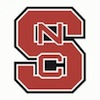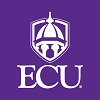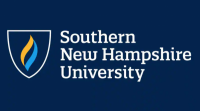
Our 2023 rankings of the Top Online MBA Programs in North Carolina. For an explanation of ranking criteria, click here.
| Ranking | School | City |
|---|---|---|
| 1 | University of North Carolina at Chapel Hill | Chapel Hill |
| 2 | North Carolina State University | Raleigh |
| 3 | North Carolina Agricultural and Technical State University | Greensboro |
| 4 | East Carolina University | Greenville |

University of North Carolina at Chapel Hill (UNC-Chapel Hill) is home to the AACSB-accredited Kenan-Flagler Business School (UNC Kenan-Flagler), which has been serving students for more than 100 years. The School houses 1,200 undergraduates and 1,800 graduate students enrolled in more than a dozen programs. This includes a STEM-designated Online MBA known as the MBA@UNC.
Launched in 2011, this 62 credit hour program provides the opportunity to customize the curriculum to support students goals. Six concentration options are available including Data Analytics and Decision Making, Entrepreneurship, Management and Leadership, Marketing, Strategy and Consulting, and Finance. Students also have access to 36 electives through UNC Kenan-Flagler and electives from other disciplines to create a custom concentration.
Elective examples include Global Brand Strategy, Python for Business Analytics, Storytelling to Influence and Inspire, Managing Innovation, Technology Strategy and Business Innovation, Data Analytics, Design and Delivery of Healthcare Systems, Consulting Skills and Frameworks, Responsible Leadership, Economies, Global Finance and Emerging Markets, Derivatives, and Business Modeling.
Students in all established and custom concentration areas will take core courses such as Business Communication, Operations, Analytical Tools for Decision Making, Leading and Managing, and Strategic Economics.
Other MBA@UNC features include interactions with professors and peers during on-campus summits, live online class sessions, internships, and experiential learning programs in major business centers such as London, Johannesburg, Singapore, and Istanbul.
University of North Carolina at Chapel Hill houses other experiential learning programs such as Student Teams Achieving Results (STAR) and Doing Business In (DBI). STAR students will work in teams, with one student serving as Project manager, on projects for real companies. Just a few STAR partners include Coca-Cola, NASCAR, UnitedHealthcare, Lenovo, KIND, and Procter & Gamble.
DBI provides the opportunity to study abroad at a UNC Kenan-Flagler MBA exchange partner school. DBI students will spend one to three weeks exploring how business is conducted in a global setting. Examples of DBI topics and locations include: Sustainability in Copenhagen, Denmark; Innovation Week in Vienna, Austria; Digital Marketing in Helsinki, Finland; General Management in Sao Paulo, Brazil; Entrepreneurship & Innovation in Tel Aviv, Israel; and Doing Business in China at Peking University.
The MBA@UNC can be completed in 18 to 36 months. Part-time and full-time schedules are available as well as GMAT waivers. With a 96% job placement rate within three months of graduation, MBA@UNC graduates land positions with more than 280 employers each year. Program alumni have been hired at places such as Amazon, Samsung, Nestle, Lenovo, Merck, Microsoft, Apple, Epic Games, Ernst & Young, Intel, IBM, Humana, Barclay’s, Ei Lily and Company, Google, Procter & Gamble, Merck & Co., Walmart, US Military, Goldman Sachs, Kaiser Permanente, Johnson & Johnson, Prudential, Dell, Deloitte, GlaxoSmithKline, PepsiCo, Cognizant, Intuit, Lenovo, JP Morgan Chase, Wells Fargo, Verizon, Tesla, and DaVita.
Founded in 1789, University of North Carolina at Chapel Hill welcomed its first students in 1795, becoming the only public university in the U.S. to award degrees in the 18th century. Today, UNC-Chapel Hill serves approximately 31,540 students enrolled more than 250 bachelor’s, master’s, and PhD programs across 15 colleges and schools. University of North Carolina at Chapel Hill is accredited by the Southern Association of Colleges and Schools Commission on Colleges (SACSCOC).

Established in 1992, Poole College of Management at North Carolina State University (NC State) serves more than 3,500 students. Of this, approximately 100 students are enrolled in the college’s Professional Online MBA. Known as the Jenkins MBA and AACSB-accredited, the program attracts professionals with an average eight years of experience with degrees in fields such as Business, Humanities & Social Sciences, Engineering, and Math & Science.
Consisting of 40 credit hours, the Jenkins Online MBA requires just two three-day residencies at NC State’s main campus in Raleigh. Otherwise all coursework for this STEM-designated program may be completed entirely online. Active duty military personnel may waive the residency requirement and replace it with elective courses. Both accelerated and flexible program options are available, allowing students to complete the program in as few as 21 months or up to six years. Start times are in the fall or spring semester.
Courses for the Jenkins Online MBA are accessible through WolfWare—NC State’s online learning management system. This learning platform utilizes tools such as Zoom, streaming video files, Moodle, and discussion boards. In addition, students will connecting with peers, professors, and guest speakers through online presentations, live video, and podcasts.
Outside of the class, students will have opportunities to work in virtual teams on group projects and meet with professors through online chat, email, a virtual collaborative space, and by phone. Jenkins online students receive technical support through the NC State DELTA Department and they have access to the Jenkins Career Management Center.
Other program features include internship opportunities; required practicums with corporate partners; the opportunity to specialize in an area through required electives; optional participation in the Study Abroad Program, which includes global experiences designed for MBA students in places such as Brazil, South Africa, and Germany; and access to seven Certificate programs.
Options include the SAP University Alliance (UA) Program; Technology Entrepreneurship and Commercialization; Business Analytics; Operations and Supply Chain Management; Marketing; Business Leadership; and Finance.
Graduates of the Jenkins MBA Program at North Carolina State University are prepared for advancement opportunities with their current employer or new leadership positions across industries. Program alumni enjoy a near 100% employment rate within three months of graduation.
Some of the top hiring companies for Jenkins MBA graduates include IBM, Lowe’s, and Bank of America. Graduates have also been recruited by Apple, Hanesbrands Inc., Chevron, American Airlines, Bayer, and Nestle Purina.
North Carolina State University employs 9,000+ faculty and staff members that serve more than 36,000 students, making it the largest university in the University of North Carolina System. Established in 1887 as a land-grant institution focusing in agriculture and engineering, NC State offers more than 300 degree programs across 11 colleges, 68 departments, and The Graduate School. North Carolina State University is accredited by the Southern Association of Colleges and Schools Commission on Colleges (SACSCOC).

In 1979, North Carolina Agricultural and Technical State University (North Carolina AT&T) became the first institution in the Piedmont Triad of NC to earn AACSB accreditation for its business programs.
The Willie A. Deese College of Business and Economics at North Carolina AT&T houses the Department of Management and the Department of Marketing and Supply Chain Management. Within these Departments are three MBA Concentrations including General Management, Human Resources Management, and Supply Chain Management. All options may be completed entirely online.
Across options, students will complete 36 credit hours, including 24 credits of core courses and 12 credits of concentration courses. General Management students will complete Data Analytics and Business Intelligence Applications; Strategic Logistics Management; Organizational Communication; and the Practicum or Internship. Human Resources Management students will take Staffing Workforce Planning and Development; Compensation and Benefits; Employee Relations and Development; Human Resource Management and Strategy.
The Supply Chain Management Concentration includes Strategic Logistics Management; Procurement Logistics and Supply Management; Global Supply Chain Design Manage; and Supply Chain Systems Integration.
Examples of core courses for all options include Strategic Marketing; Managerial Accounting Decision Making Concepts; Operations Management; Business Analytics; Corporate Strategy and Policy; Managerial Economics; and Management and Organizational Behavior.
The culminating experience for the North Carolina AT&T is the Corporate Strategy and Policy Capstone. This course covers topics such as Control, Strategy Implementation, Crafting Corporate and Business-Level Strategy, Managing Strategic Change, and Strategic Role of the General Manager.
Others areas covered include analyzing industry evolution, global rivalry, building a firm’s capability to sustain competitive advantage, and ethical reasoning as it relates to strategic competitive decisions. Course objectives are accomplished through extensive case analysis across industries and managerial settings to give students the opportunity to apply strategic management skills and tools.
Graduates of the Online MBA at North Carolina Agricultural and Technical State University have enjoyed a 90% job placement rate—before graduation. Program alumni have been hired at Boeing, KPMG, Amazon, Shell Oil, Volvo Corporation, Rubbermaid, John Deere, XPO Logistics, and International Paper. Graduates have also been accepted into some of the most competitive PhD programs in the country.
Founded in 1891, North Carolina Agricultural and Technical State University serves approximately 13,489 students enrolled in more than 140 programs across nine colleges and schools, and AT&T Online. North Carolina Agricultural and Technical State University is accredited by the Southern Association of Colleges and Schools Commission on Colleges (SACSCOC).

East Carolina University (ECU) became the first school in the state to offer a fully accredited Online MBA in 2004/2005. Housed in the ECU College of Business (COB), the Online MBA is identical to the on-campus program, which has been AACSB accredited since 1967.
The Online MBA at ECU provides to opportunity to customize the program through more than 30 different elective options from specialized areas or one of 14 COB-affiliated certificates. Elective examples include Electronic Markets; Systems Analysis and Design; Fraud Examination; Strategic Logistics Management; Sports Marketing; International Management; Leading with Ethics and Corporate Social Responsibility; Global Marketing; Real Estate Analysis; Entrepreneurship; and Management of Financial Risk.
Most certificates require four or five courses. ECU MBA students can choose from certificates within the College of Business or in departments outside of the COB (Partner Certificates). COB examples include Leadership in Organizations; Business Analytics; Management Information Systems; Sustainable Tourism; and Project Management. Partner Certificates include Development & Environmental Planning; Healthcare Management; International Management; Security Studies; and Sport Management.
The Online MBA at East Carolina University can be completed in as few as 11 classes or up to a maximum of 18. Graduates are prepared for advancement opportunities in their current careers or for leadership roles in industries such as Finance, Healthcare, Insurance, Marketing, Human Resources, Operations, and Consulting.
Founded in 1907 as a teacher training school, East Carolina University serves 26,785 students enrolled in nearly 270 degree and certificate programs. Approximately 11,815 students (43.5% of the student body) are enrolled in STEM/Health Care programs. Degree and certificate options at ECU are housed across 12 colleges and schools. East Carolina University is accredited by the Southern Association of Colleges and Schools Commission on Colleges (SACSCOC).







